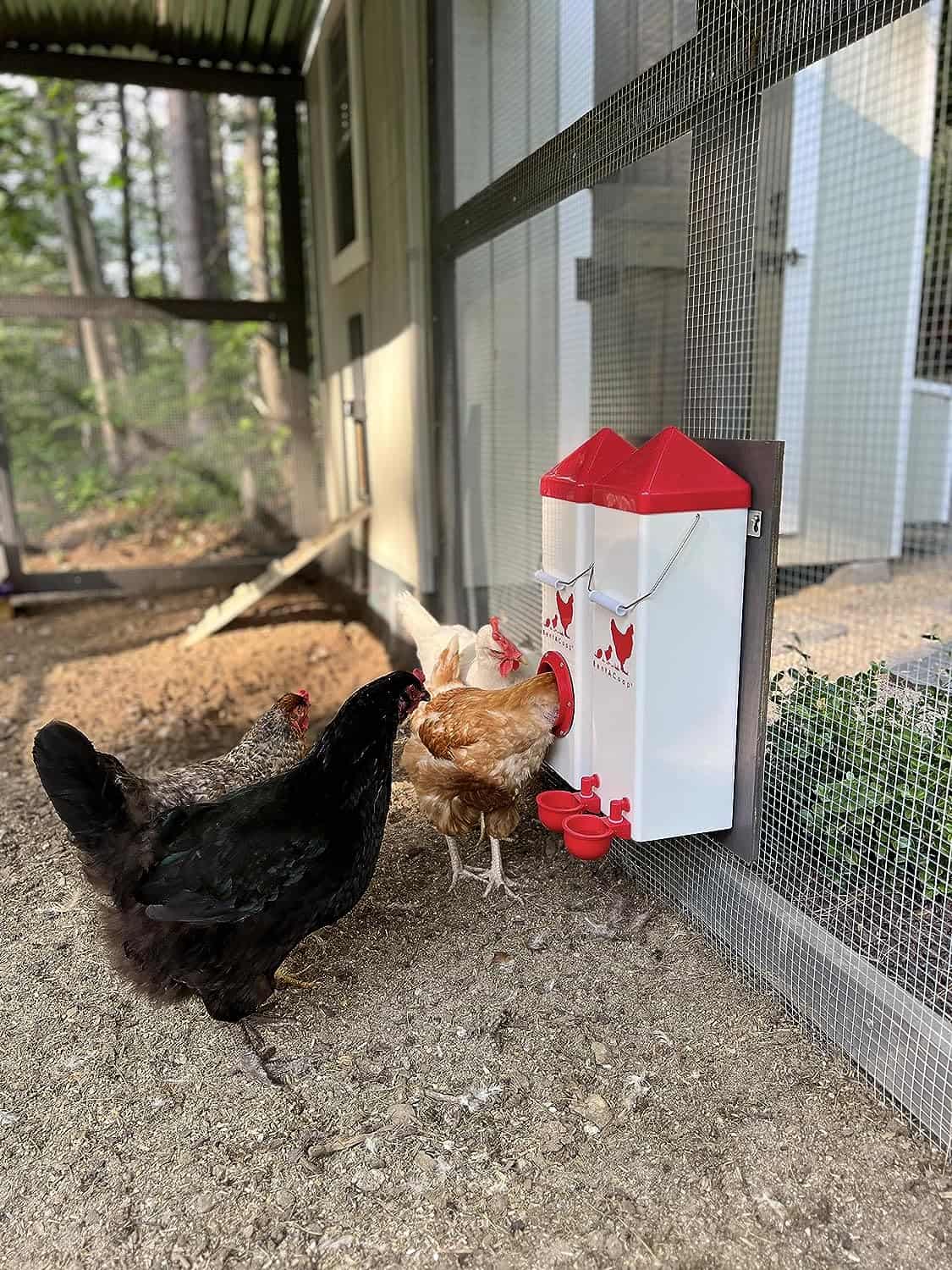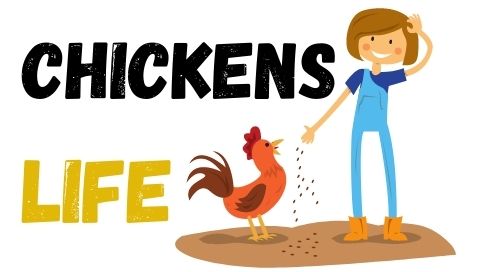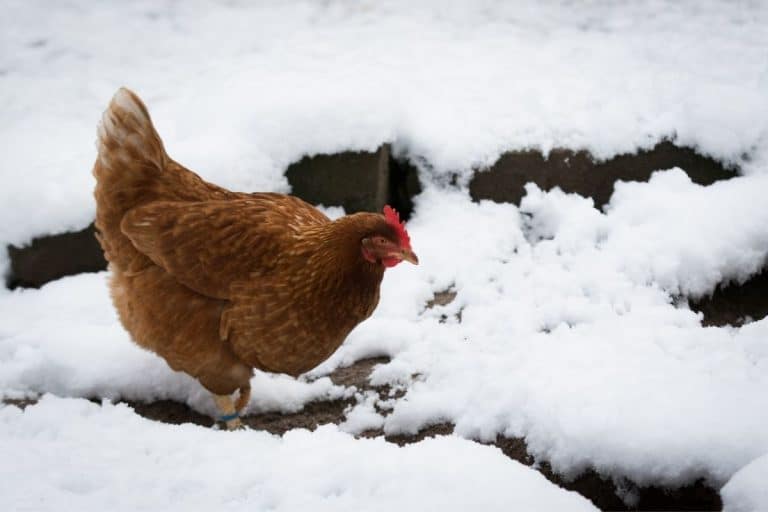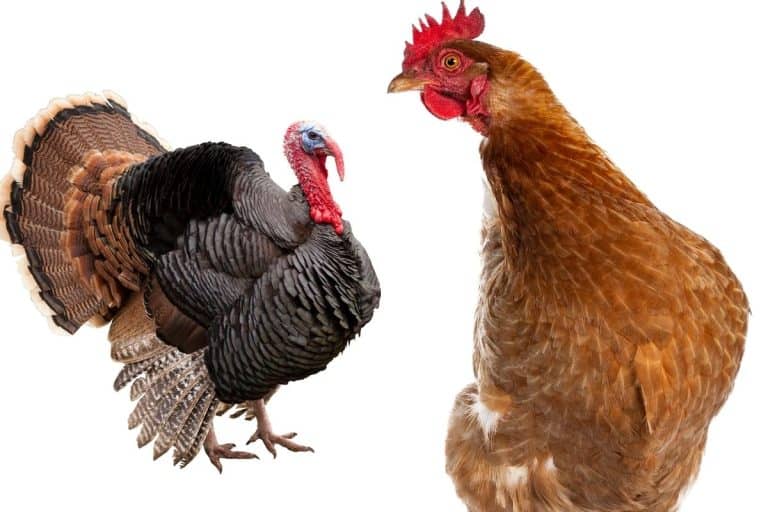Can Chickens Feel Pain and Other Emotions? (Research data)
All animals, whether they are poultry, mammals or aquatic have been found to have some sort of reaction to pain stimuli. Chickens are no exception to the rule, as I have definitely walked into a coop and heard a squawk over accidentally having a foot stepped on. One of the first steps in understanding the response in chickens, you need to know how and why we, or any species, feel pain.
Chickens most certainly can feel physical pain because their skin is full of numerous receptors for temperature, pain and pressure.
When raising chickens it is important to know that they are sensitive creatures who can feel and display symptoms of physical and emotional discomfort. This article will help you recognize the signs of pain and sadness in your feathered friends so you can better understand this complex and emotional bird.
But before you dive into this topic, did you know I've got a page packed with my go-to chicken stuff? From the best feed to handy tools, it's all there. Don't you want the best for your flock? Check it out right here.
Can Chickens Feel Pain?
Chickens and almost all other animals with a central nervous system can absolutely feel pain. Chickens are actually sensitive to touch, and their skin is loaded with receptors that will travel back to the brain to tell it that there is damage or discomfort with the tissue.
The beak of the chicken houses the most sensory receptors because it is used to grasp and manipulate food and non-food items. You can almost look at the beak as a similar part of the body to our fingers, they have a lot more nerve endings in the skin of our fingers than many other parts.
Chickens are sensitive to touch, and their skin contains numerous kinds of receptors for temperature, pressure, and pain.
Lori Marino
Wait, I have some recommendations for you!
Before you go any further, I want you to take a look at some of the recommendations I've handpicked for you. I think these are essential items you should have for your chickens flock. You can check them out and buy them directly from Amazon.
 |  |  |  |
| Essential accessory for your coop | No more tripping over hoses! | Predator protection made easy | Comfort + style is possible |
How Does The Body Feel Pain?
It is important to understand exactly how the body and brain communicate together in response to a pain stimulus. Pain is generated from nociceptive signals that occur in the body’s central nervous system. This goes for most species, except jellyfish, because they somehow function without a central nervous system. Basically, anything with an appropriately functioning nervous system will have the ability to feel pain. Chickens or people, it all applies the same.
Nociceptors
A nociceptor is a specialized sensory nerve ending that is activated by damage to tissues from some type of noxious stimuli. A noxious stimuli is anything that poses a threat to tissue or actually damages the tissue by crushing, cutting or burning.
Nociception is the recognition of a noxious event by the nociceptors. These nociceptors are not only found in the skin but are also found throughout the body’s muscles, joints and viscera. The process of nociception causes the body’s tissues to send signals to the central nervous system. Once this is processed by the brain, it will trigger some kind of response which usually results in an unpleasant physical or emotional reaction, such as sudden noise or recoil away from the offending stimuli.
Research Data
Trying to understand the chicken’s physiology and responsiveness to pain stimuli can be difficult, mostly because they aren’t human. Obviously, chickens can’t give us any verbal feedback on how they feel about something. We can only go off their reaction and any aversion to the potential stimuli.
Many scientific studies have been done over several decades to try and interpret whether they experience pain or what the degree of pain is that animals, including chickens, can feel. First, the confirmation that these vertebrates, which are any species with a spinal column and central nervous system, have similar anatomy to humans, showing that they indeed have a central nervous system and are capable of feeling pain.
After being subjected to a painful or noxious stimulus the chicken would typically develop an aversion to this potential threat of pain in the future. This indicator is very much like how humans respond to a painful or emotional trauma, therefore proving that they are capable of feeling a painful stimulus.
Can Chickens Feel Emotions Like Sadness Or Happiness?
Years of studies and research data have shown that chickens do indeed have the ability and mental capacity for emotions such as love, anger and sadness.
Until there was an adequate amount of research to disprove it, the theory that chickens do not have the psychological depth and intelligence as other species was thought for quite some time.
Emotions
There have been a limited number of studies specifically with chickens and their emotional and cognitive capabilities. But the few bits of research done on them does show that chickens are indeed able to show a scope of positive and negative emotions, ranging from sadness to affection for chickens and other species.
There are a number of compelling findings implying that not only chickens experience emotions but that those emotions can be quite complex, given that they are combined with cognition and sociality.
Lori Marino
Chickens have shown signs of sadness after a flock member dies and happiness over seeing their favorite human coming out to feed them. You will notice these subtle changes in emotions as you are more familiar with your chickens and their personalities.
Affection And Admiration
When chickens are happy and content with a person or other animal, they will usually want to spend time with them or cuddle in their laps for some downtime. They will also show love and affection to their young by protecting, cleaning them and showing or bringing them food and treats.
Sadness And Depression
Sometimes when a chicken has lost a loved one or has become ill or injured they will show signs of sadness or depression. Their behaviors may be very similar to what you would expect to see if a chicken were in a sad emotional state. They may hide or isolate themselves from the flock, make low, depressive noises when approached and stop eating.
These are both symptoms of sadness and show a deep idea of emotional complexity and understanding in the chicken species.
Intelligence And Self-awareness
The assumption that birds, chickens included, were less intelligent and emotionally adept than mammals has been disproved as the avian species continues to impress researchers with their abilities to do minor arithmetic and other higher-order cognitive tasks.
The debate about self-awareness has been an area of disagreement among some chicken enthusiasts and researchers alike. A study was performed to see if hens had the ability to refuse a small reward to receive a larger one later. Because of the demonstrated ability of the chicken to have self-control, many would say that this proves that the species is capable of self-awareness.
One certain thing, is that chickens have a decent memory, they can remember most of their past experiences (click on the link to learn more about this).
Personalities
I can say for sure that it doesn’t take too much experience with chickens before you realize how distinct each of their personalities can be. While the hens are usually the friendlier ones, the roosters can sometimes be amenable to pets and cuddling too.
Their unique personalities will show you that each chicken that you have in your flock will be an individual, recognizing some as more affectionate and others as lone chickens who prefer pets on their own terms.
Never take for granted your chicken’s abilities for emotional capacity, as their individual personalities will sometimes dictate how they react to certain situations, stimuli and other animals or people.
Research Data
There lacks a large amount of research around the emotional capabilities of chickens, but what has been done shows a lot of information regarding the complexity of their awareness and abilities to display love and affection. Also, the amount of studies performed on other avian species tells us some about birds as a whole, although not all of them have the same cognitive and emotional capabilities.
Chickens Are More Complex Than You Would Think
Try not to underestimate chickens as a species, they will certainly surprise you with their quick learning and adeptness for emotional and mental understanding. This species overcomes a multitude of doubts from the scientific community as they disprove the outdated thoughts of lower intelligence and lack of self-awareness.
Science has recently shown that chickens are almost on par with intelligence with dogs, parrots and some primates. While these may need more research completed before the majority of people will believe it, find out for yourself by overseeing and getting to know your backyard flock.
After all, chickens are no bird brains!







